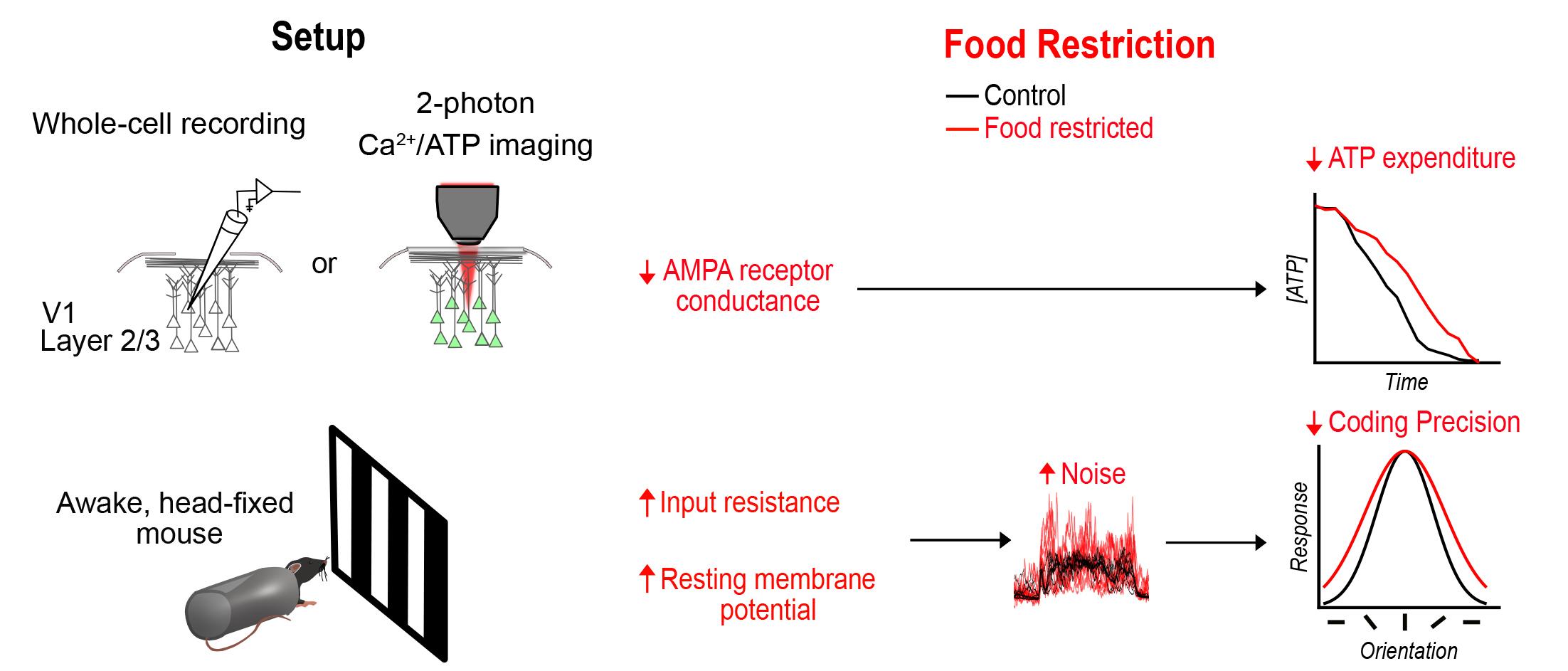Abstract:
Information processing is energetically expensive. In the mammalian brain, it is unclear how information coding and energy usage are regulated during food scarcity. I addressed this in the visual cortex of awake mice using whole-cell recordings and two-photon imaging to monitor layer 2/3 neuronal activity and ATP usage. I found that food restriction reduced synaptic ATP usage by 29% through a decrease in AMPA receptor conductance. Neuronal excitability was nonetheless preserved by a compensatory increase in input resistance and a depolarized resting membrane potential. Consequently, neurons spiked at similar rates as controls, but spent less ATP on underlying excitatory currents. This energy-saving strategy had a cost since it amplified the variability of visually-evoked subthreshold responses, leading to a 32% broadening in orientation tuning and impaired fine visual discrimination. These findings reveal novel mechanisms that dynamically regulate energy usage and coding precision in neocortex.

Summary Figure. Food restriction results in ATP savings at the expense of coding precision in mouse visual cortex. (Left) Experimental setup. (Right) Cell intrinsic changes with food restriction result in energy savings and broadened orientation tuning.
Biography:
Zahid Padamsey holds a BSc (Hons) in Neuroscience from the University of Toronto (2009), and an MSc (2010) and DPhil (2014) in Neuroscience from Oxford University.
During his graduate studies with Nigel Emptage he developed an interest for synaptic physiology, and demonstrated that glutamate release was not necessary for long-term potentiation at presynaptic terminals. He was subsequently awarded a Junior Research Fellowship from Magdalen college, during which he demonstrated that lysosomes played an instrumental role in supporting activity-dependent spine growth. He subsequently secured an 1851 Research Fellowship, which he pursued in the lab of Nathalie Rochefort. Here, inspired by the work of Simon Laughlin and David Attwell, he focussed on understanding how metabolic state impacts synaptic function and energy use in neocortex.
Click here to register via Eventbrite
